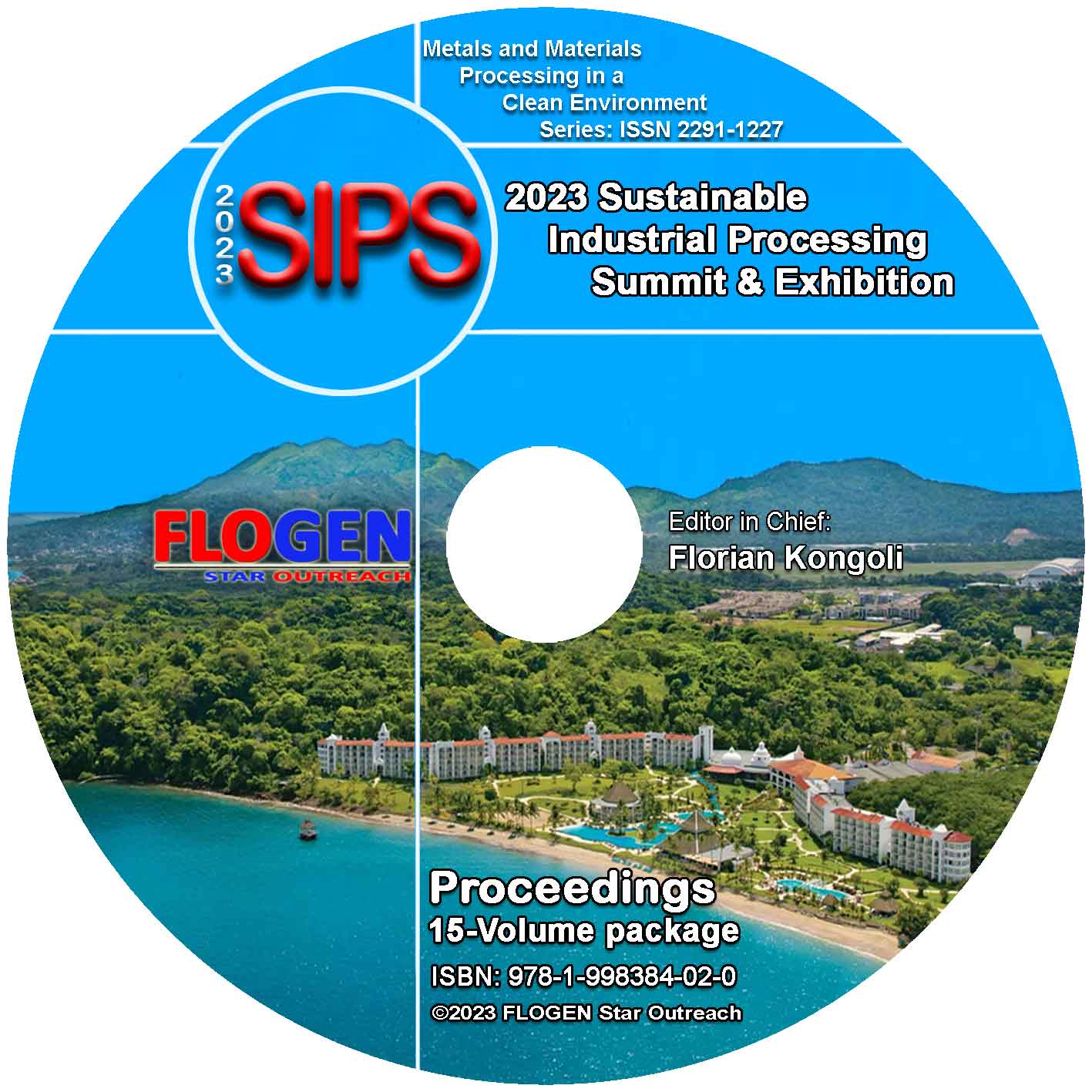2023-Sustainable Industrial Processing Summit
SIPS2023 Volume 3. Durán Intl. Symp / Glass Processing & Applications
| Editors: | F. Kongoli, S. Oktik, E. Muijsenberg, L. Belmonte, D. Brauer, B. Cazes, J. Parker, S. Tanabe, K. Ward, U. Jokhu-Sowell, V. Kapur |
| Publisher: | Flogen Star OUTREACH |
| Publication Year: | 2023 |
| Pages: | 107 pages |
| ISBN: | 978-1-989820-76-6 (CD) |
| ISSN: | 2291-1227 (Metals and Materials Processing in a Clean Environment Series) |

CD shopping page
CHEMICAL TREATMENTS FOR THE SUSTAINABILITY OF GLASS
REFIKA BUDAKOGLU1;1ÅžIÅŸECAM, Kocaeli, Turkey;
Type of Paper: Regular
Id Paper: 309
Topic: 72
Abstract:
For the sustainability, chemical treatments such as sol-gel coatings offer a means of increasing the strength of glasses, leading to lighter and more durable products and functionality such as antireflective coating on Photovoltaic panels. The sol-gel coating process involves chemical reactions during the formation of coatings on surfaces. Sol-gel coatings can enhance the strength of glasses and other brittle materials by filling in surface micro-flaws and providing a self-healing effect. And, with chemical engineering durable antireflective coatings on photovoltaic panels can be attained [1,2,3,4].
In this study, our primary focus will be on research and development studies related to strength improvement with sol-gel coating for bottles and durable anti reflective for PV glass. By changing the mold design, glassware can be made lighter. Sol-gel coatings offered a way to improve the strength of glassware by up to 20% without altering the design. Photovoltaic modules are deployed in many different environmental conditions and it is important that the panels have durable anti-reflective coatings
As a result, chemical treatments have the potential to provide significant increases in the strength and durability of glass, making glass more sustainable in a variety of applications such as glass container and solar panels.
Keywords:
Glass; Glass Production; Glass Science; coating; chemical tempering; sustainablityReferences:
[1] I. H. C. Karbay, R. Budakoglu, E. O. Zayim, App. Surf. Sci. (2015) 1890-1894.[2] G.A. Sobacı, O.B. Okan, K. Kazmanlı, R. Budakoğlu, J. Sol-Gel Sci. (2022) 102, 493–503
[3] U. iringer, A. Duran, Y. Castro, I. Milosev, J. Electrochem. Soc. (2018) 165 (5) C213-C225.
[4] C. Li, Z. Zhou, W Cao, Y. Zheng, Q. Wang, Y Huang, S. Shen, Appl. Glass Sci. (2019) 329-339.